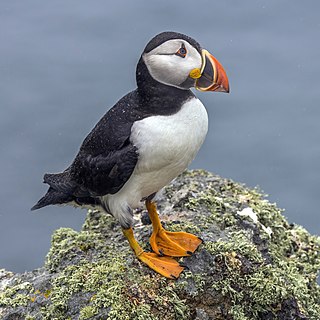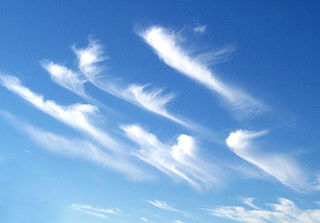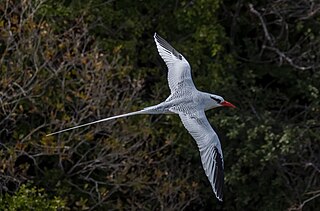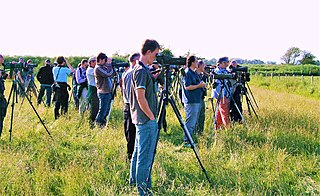
William Edgar Oddie is an English writer, comedian, songwriter, musician, artist, birder, conservationist, television presenter and actor. He was a member of comedy trio The Goodies.

Birdwatching, or birding, is the observing of birds, either as a recreational activity or as a form of citizen science. A birdwatcher may observe by using their naked eye, by using a visual enhancement device like binoculars or a telescope, by listening for bird sounds, or by watching public webcams.

The Atlantic puffin, also known as the common puffin, is a species of seabird in the auk family. It is the only puffin native to the Atlantic Ocean; two related species, the tufted puffin and the horned puffin is found in the northeastern Pacific. The Atlantic puffin breeds in Russia, Iceland, Ireland, Norway, Greenland, Newfoundland and Labrador, Nova Scotia, and the Faroe Islands, and as far south as Maine in the west and France in the east. It is most commonly found in the Westman Islands, Iceland. Although it has a large population and a wide range, the species has declined rapidly, at least in parts of its range, resulting in it being rated as vulnerable by the IUCN. On land, it has the typical upright stance of an auk. At sea, it swims on the surface and feeds on small fish and crabs, which it catches by diving underwater, using its wings for propulsion.

Wind shear, sometimes referred to as wind gradient, is a difference in wind speed and/or direction over a relatively short distance in the atmosphere. Atmospheric wind shear is normally described as either vertical or horizontal wind shear. Vertical wind shear is a change in wind speed or direction with a change in altitude. Horizontal wind shear is a change in wind speed with a change in lateral position for a given altitude.

The great black-backed gull is the largest member of the gull family. Described by the Cornell Lab of Ornithology as "the king of the Atlantic waterfront", it is a very aggressive hunter, pirate, and scavenger. It breeds on the European and North American coasts and islands of the North Atlantic and is fairly sedentary, though some move farther south or inland to large lakes or reservoirs. The adult great black-backed gull has a white head, neck and underparts, dark grey wings and back, pink legs and yellow bill.

The red-billed tropicbird is a tropicbird, one of three closely related species of seabird of tropical oceans. Superficially resembling a tern in appearance, it has mostly white plumage with some black markings on the wings and back, a black mask and, as its common name suggests, a red bill. Most adults have tail streamers that are about two times their body length, with those in males being generally longer than those in females. The red-billed tropicbird itself has three subspecies recognized, including the nominate. The subspecies mesonauta is distinguished from the nominate by the rosy tinge of its fresh plumage, and the subspecies indicus can be differentiated by its smaller size, more restricted mask, and more orange bill. This species ranges across the tropical Atlantic, eastern Pacific, and Indian Oceans. The nominate is found in the southern Atlantic Ocean, the subspecies indicus in the waters off of the Middle East and in the Indian Ocean, and the subspecies mesonauta in the eastern portions of both the Atlantic and the Pacific Oceans and in the Caribbean. It was one of the many species described by Carl Linnaeus in his 1758 10th edition of Systema Naturae.
The West Midland Bird Club is the UK's largest regional ornithological society. It has been serving birdwatchers and ornithologists in the four English counties of Staffordshire, Warwickshire, Worcestershire and the Metropolitan West Midlands, with lectures, field trips, research, a bulletin and an annual report, since 1929. It is a registered charity in England and Wales, number 213311.
Britain Goes Wild with Bill Oddie is a live BBC TV show, broadcast nightly, Monday – Thursday, from 31 May 2004 to 17 June 2004.
Bill Oddie Goes Wild is a British television series about natural history, presented by Bill Oddie. Three series were made.
Birding with Bill Oddie was a British TV programme, about natural history, presented by Bill Oddie. Three series and eighteen episodes were made, which ran from 21 February 1997 to 31 March 2000 on BBC Two.

Bartley Reservoir is a reservoir for drinking water in Birmingham, England, operated by Severn Trent Water. It covers 460,000 square metres (5,000,000 sq ft).

Stephen Moss is an English natural historian, birder, author, and television producer.

Twitchers' vocabulary is the set of jargon words used by twitchers. Some terms may be specific to regional birding communities, and not all are used due to dialectic and cultural differences.
Springwatch, Autumnwatch and Winterwatch, sometimes known collectively as The Watches, are annual BBC television series which chart the fortunes of British wildlife during the changing of the seasons in the United Kingdom. The programmes are broadcast live from locations around the country in a primetime evening slot on BBC Two. They require a crew of 100 and over 50 cameras, making them the BBC's largest British outside broadcast events. Many of the cameras are hidden and operated remotely to record natural behaviour, for example, of birds in their nests and badgers outside their sett.

Moelfre is a village, a community and, until 2012, an electoral ward on the north-east coast of the Isle of Anglesey in Wales. The community area covers the village and harbour, and several smaller, dispersed settlements. It includes six scheduled Iron Age hut groups and many other sites of archaeological interest. The harbour was formerly a local fishing port; a lifeboat station has been based here since 1854. Among many shipwrecks off the coast was that of the Royal Charter in 1859. Near the modernised lifeboat station is the RNLI Seawatch Centre. The coastline includes a rocky headland north of the village and a large sandy beach at Lligwy Bay, both traversed by the Anglesey Coastal Path. The 2011 census measured the village population as 710. It was estimated at 614 in 2019.

Katherine Mary Humble is an English television presenter and narrator, mainly working for the BBC, specialising in wildlife and science programmes. Humble served as President of the Royal Society for the Protection of Birds from 2009 until 2013. She is an ambassador for the UK walking charity Living Streets.

Christopher Richard Watson is an English musician and sound recordist specialising in natural history. He was a founding member of the musical group Cabaret Voltaire, and Watson's work as a wildlife sound recordist has covered television documentaries and experimental musical collaborations.

Gwennap Head is a headland on the south coast of the Penwith peninsula, Cornwall, United Kingdom. It is within the parish of St Levan and approximately 4 miles (6.4 km) south of Land's End, and less than 1 mile (1.6 km) north-west of Porthgwarra, the nearest village. The area of Gwennap Head is designated as part of the Penwith Heritage Coast and also designated as part of the Cornwall Area of Outstanding Natural Beauty. The South West Coast Path closely follows the coastline around the headland.

New Quay Lifeboat Station is an RNLI lifeboat station in the coastal resort of New Quay, Ceredigion, West Wales. It was established in 1864 and in 2014 celebrated 150 years of service. In 2014 the station operated two lifeboats: a Mersey class all-weather boat and a D class inshore boat.














